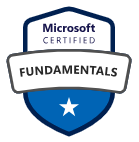Maximizing
Network Reliability
With Mark-IT-Able Solutions
In today's fast-paced digital landscape, small business owners encounter numerous challenges, especially when managing their networks. A reliable network management and support strategy is a must for smooth and efficient operations. Mark-IT-Able Solutions implements strategies specifically designed to help you maximize efficiency through effective network management and support.
Understanding Network Management
Network management is the process of monitoring, maintaining, and optimizing a network's performance. This includes ensuring connectivity, managing bandwidth, and troubleshooting problems. For small and medium business owners, reliable network management is essential to staying competitive.
Key components of effective network management include:
Monitoring: Keeping an eye on network performance can help you catch potential issues early, preventing them from affecting your operations.
Configuration Management: Ensuring that all network devices are properly set up and consistently configured helps maintain stability.
Performance Management: By analyzing network performance metrics, you can discover areas that need improvement.
Security Management: Protecting your network from unauthorized access and threats is vital for business continuity.
Focusing on these components allows small business owners to build a network management strategy that meets their operational needs effectively.
The Importance of Reliable Support
While effective network management is important, having reliable support in place is equally essential. Network issues can pop up unexpectedly, and a solid support system can make a significant difference. Having dedicated support ensures you can get expert help quickly when needed.
Reliable support is crucial for small businesses for several reasons:
Minimized Downtime: Access to quick support helps resolve issues swiftly, keeping your business running smoothly. For example, businesses that have a solid support network can reduce average downtime by up to 40%.
Expertise on Demand: Having a specialized support team allows you to address complex network issues without the need to hire full-time staff.
Proactive Maintenance: Many reliable support services include proactive monitoring, which helps detect and address problems before they escalate.
Cost-Effective Solutions: Outsourcing support can often be more budget-friendly than maintaining a full in-house team, especially for small businesses operating on tight budgets. Research shows that businesses can save approximately 30% on operational costs through outsourcing.
By investing in reliable support, small business owners can ensure their networks remain operational and efficient.
Strategies for Effective Network Management
To maximize efficiency, small and medium business owners should implement several strategies for effective network management. Here are some practical tips:
1. Invest in Quality Hardware
The backbone of a reliable network is quality hardware. Upgrading to high-performance routers, switches, and access points can significantly boost network performance. For instance, state-of-the-art routers can enhance speed by 50% and support more devices without compromising quality.
2. Regularly Update Software
Keeping your network devices and software updated is crucial for security and performance. Regular updates not only patch vulnerabilities but also introduce new functionalities. Create a monthly schedule for checking and applying updates to maintain the integrity and efficiency of your network.
3. Implement Network Monitoring Tools
Utilizing network monitoring tools can offer valuable insights into your network's performance. These tools allow you to identify bottlenecks, track usage patterns, and catch potential problems early. Many monitoring solutions provide real-time alerts, enabling rapid responses to issues.
4. Establish a Backup Plan
Having a reliable backup plan is key for any network management strategy. Schedule regular backups of your data and network configurations to avoid losing valuable information. Cloud-based solutions can enhance security and allow for easy data retrieval.
5. Train Your Team
Providing your team with training on network best practices can greatly enhance your network's reliability. Cover topics such as password management, recognizing phishing attempts, and safe browsing habits. Educated employees can significantly reduce the number of common network issues.
The Role of Cybersecurity in Network Management
In today's digital age, cybersecurity is a critical component of network management. Small and medium businesses are frequently targeted by cybercriminals, making solid security measures essential. Here are some key cybersecurity practices to implement:
Firewalls: Utilize firewalls to safeguard your network from unauthorized access and threats, reducing the risk of breaches by up to 70%.
Encryption: Encrypt any sensitive data to keep it secure, even if intercepted.
Regular Security Audits: Conduct security audits regularly to identify and promptly address vulnerabilities.
User Access Controls: Apply user access controls to limit sensitive information based on roles and responsibilities within your organization.
Focusing on cybersecurity enables business owners to defend their networks and maintain customer trust.
Final Thoughts
In summary, efficient network management and reliable support are vital for maximizing effectiveness in small businesses. By understanding the key principles of network management, investing in quality hardware, and adopting proven strategies, small business owners can develop a strong network that meets their needs. Furthermore, prioritizing cybersecurity and ensuring dependable support will bolster network reliability.
As a small or medium business owner, investing time in shaping a comprehensive network management strategy will yield significant long-term benefits. Not only will it help you prevent costly downtime, but it will also let you focus on what truly matters—growing your business.


Sign up now for a comprehensive network review
Real-World Examples of Mark-IT-Able Solutions in Action
To illustrate the effectiveness of cybersecurity, let’s look at a few real-world examples where Mark-IT-Able Solutions could help you.
Example 1: A Financial Institution
A large financial institution faces numerous cyber threats, including phishing attacks and ransomware.
By implementing Mark-IT-Able Solutions cybersecurity protection, they could establish a multi-layered security approach including advanced threat detection systems, employee training programs, and regular security audits.
As a result, the institution can significantly reduce the number of successful attacks and improve its overall security posture.
Example 2: A Healthcare Provider
A healthcare provider may be struggling with data breaches that compromise patient information.
By adopting Mark-IT-Able Solutions cybersecurity protection that includes encryption for sensitive data and strict access controls they can protect patient information and also ensure compliance with regulations such as HIPAA.
This solution results in a marked decrease in security incidents and improved trust from patients.
Services
Tailored IT solutions for your business
Consultancy
Support
mark@markitablesolutions.com
203-614-9685
© 2026 All rights reserved


Mark-IT-Able Solutions
AI Certified Champion




